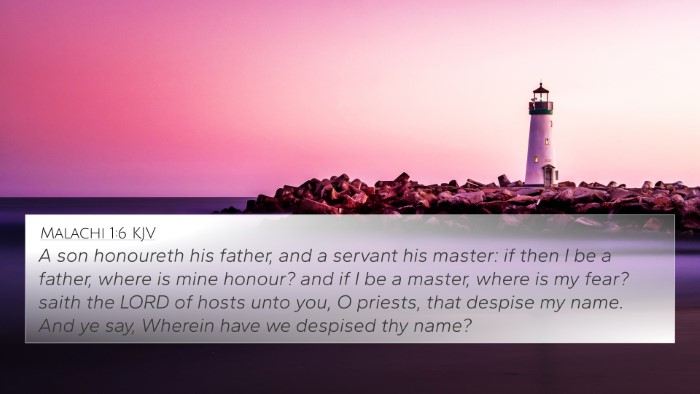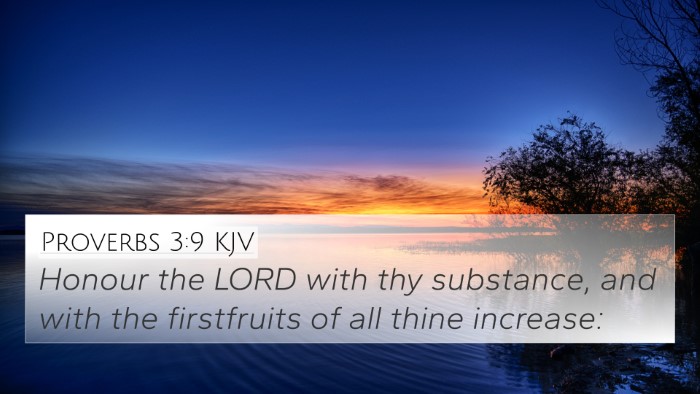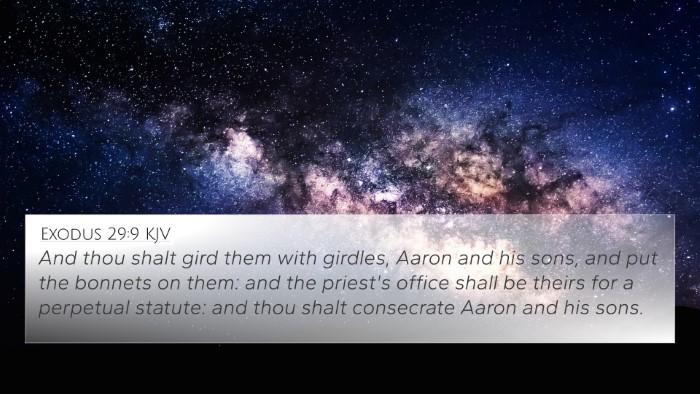Understanding 1 Samuel 2:30
1 Samuel 2:30 states: "Therefore the Lord, the God of Israel, declares: I promised that your house and your father’s house would minister before me forever. But now the Lord declares: Far be it from me! Those who honor me, I will honor, but those who despise me will be disdained." This verse encapsulates critical themes of divine promise, the importance of honoring God, and the consequences of dishonor.
Verse Context and Significance
In 1 Samuel 2, God speaks through the prophet Samuel to Eli, marking a pivotal moment of divine judgment. Eli’s household, which had previously enjoyed a place of honor as priests, faces God's displeasure due to the corruption of Eli's sons, Hophni and Phinehas, and Eli’s failure to restrain them. This declaration frames the transition from Eli's family to a new priestly lineage, emphasizing God's sovereignty and righteousness.
Key Themes and Lessons
- Divine Judgment: God’s pronouncement highlights the seriousness of sin and accountability, showing that divine grace is not given without expectations.
- Honoring God: The promise that those who honor God will be honored serves as both a warning and an encouragement to live righteously.
- Transition of Priesthood: The shift in priestly authority illustrates that God can choose whomever He desires to serve Him, based on faithfulness and obedience.
Commentaries Insights
Matthew Henry
Matthew Henry notes that this verse signifies God’s final word to Eli regarding his family's priesthood. He underscores that God expects honor from His servants and will not tolerate dishonor. Henry elaborates that God has the prerogative to revoke His covenant blessings if a lineage fails in its duties.
Albert Barnes
Albert Barnes emphasizes the conditional nature of God’s promises. He explains that while Eli's house once had a covenant with God, this covenant is now at risk due to disobedience. Barnes points out that God's mercy must be balanced with His justice, indicating that true service to God is essential for receiving His blessings.
Adam Clarke
Adam Clarke highlights the dual message within this verse—the promise to those who honor God, contrasted with the severity faced by those who do not. Clarke indicates that Eli's family, though favored originally, must adhere to God’s commands, or face dire consequences, reflecting God’s unwavering standard for holiness.
Cross References
This verse connects with various other scriptures that reflect on the themes of honor, service, and divine judgment:
- Exodus 20:12: "Honor your father and your mother," reflecting the broader principle of respect toward authoritative figures.
- Psalm 91:14-15: "Because he holds fast to me in love, I will deliver him; I will protect him, because he knows my name," reinforcing the theme of God honoring those who honor Him.
- Malachi 1:6: "A son honors his father, and a servant his master. If then I am a father, where is my honor?" draws a parallel to the expectation of honor from God's people.
- Jeremiah 44:10: "They have not humbled themselves even to this day, nor have they feared, nor walked in My law," exemplifies the significance of humility and obedience in receiving God’s favor.
- Luke 12:47-48: "And that servant who knew his master's will but did not get ready or act according to his will will receive a severe beating," parallels the accountability for neglecting divine mandates.
- Hebrews 12:6: "For the Lord disciplines the one he loves," illustrating that God’s correction is a testament to His love and expectations.
- Romans 2:6-8: "He will repay each one according to his works," emphasizes the principle of divine justice aligned with service and honor towards God.
Conclusion
1 Samuel 2:30 serves as a reminder of the expectations God has for those in service to Him. The warnings issued against Eli's house resonate throughout scripture, reinforcing the continuous need for respect and obedience towards God's commands. The principles laid down in this verse echo in numerous passages across the Bible, establishing a framework for understanding the significance of honoring God in all aspects of life.
Thematic Connections
This verse invites readers to explore deeper thematic connections across the Bible:
- Divine Sovereignty: Seen throughout scripture in God's choices of leaders and the consequences of their actions.
- Corruption in Leadership: Addressed in both the Old and New Testaments, reflecting the serious consequences of failing in God-given authority.
- Redemptive Promises: The continuity of God's covenants from the Old Testament through the New Testament, illustrating hope amidst judgment.
As you study 1 Samuel 2:30, consider these cross-references and themes. They enrich the understanding of God's character and His relationship with humanity, illustrating that our actions have profound spiritual implications.


























